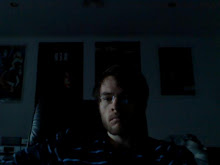Always the hireling of our audience, we were saddened to find we had none. This information, presented by Google Analytics with its cold uninvolvement, we found a grim affront. Though it may be blameable on our infrequency posting, PITCH would prefer to think our heterodox, no-prisoners take on modern poetry has riled a silently conservative critical public to studied inattention. You’re listening by ignoring, see. You bastards can’t evade our voice.
So (because we thunk our way out of it, like WS in his Christian /non-Christian 146 thinks his way away from Death), this was not the occasion of our downcast temper. What also could have caused it?
If you were to guess, you might try Thomas Day, who weeks back reviewed A Worldly Country in the Saturday Times’ book section:
[Ashbery’s] is not the difficulty of a poet such as, say, Geoffrey Hill, who tends to view the reader as an enemy, making burdensome demands of us, unforgiving of our weak-mindedness. With Ashbery there is no guilt trip, only gentle encouragement not to give up: ‘Still at it, friend?’
Christ, is Day deaf and blind? Hill’s words are — first, before all — beautiful. The effect of their beauty is to surprise, to shock:
In the Orchard palliates my distress
with slender familiarity. So much
for schooling of the eyes. I could show rather
unstudied transformations, although rare.
Rare for me, I mean: wreathed encounters
on the threshold of late friendships, things
unrecovered, even if unrestored, sad
Succoth, the feast of booths. Can you stand —
cleft — but in the spirit, as a tree
by lightning, close to the shored heart?
[...] Survivors
live out their lives as though by will
and freedom, with or without fulfilment.
Not that is matters now: such frequencies
largely dispersed, the myriad-
faceted black holly of endurance
itself, keeping sombre-bright clusters
exilic. By the way, this
has to show winter in its boundary,
Goldengrove laid bare, becalmed,
lightly sketched in snow; peacock
and peahen treading the white grass.
Abruptly the sun’s out, striking a new
cleave; skidding the ridge-grass, down steep hangers;
buddleia in dark bloom; a wayward covey
of cabbage-whites this instant ׀ balanced
and prinking, the light itself aromatic.




No comments:
Post a Comment